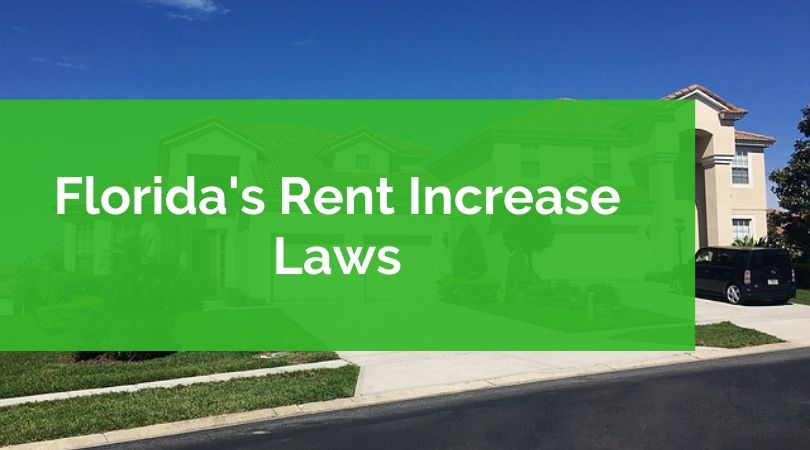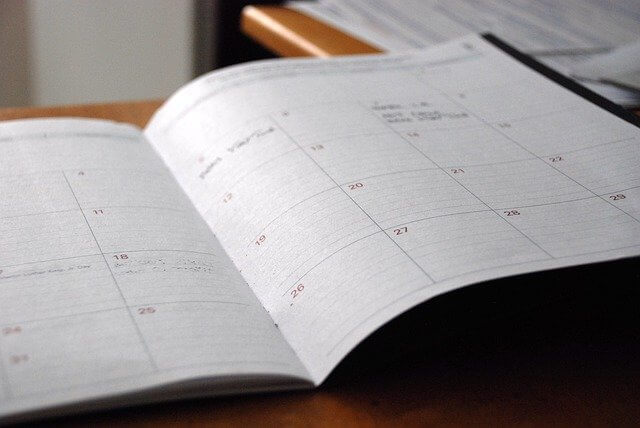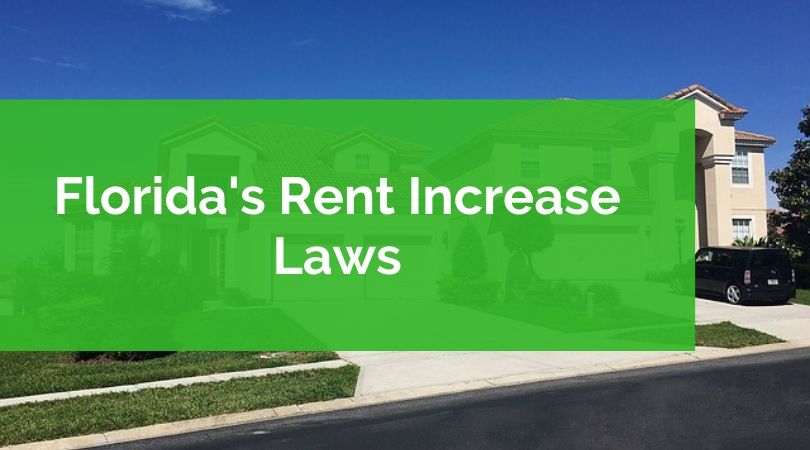
Florida landlords in Miami need to keep up with both rental market trends and Florida landlord-tenant law. Sometimes economic changes demand that a landlord raise rental prices to keep up with the market others are forced by changes in the Florida landlord-tenant laws' rent control measures. Other possible reasons for landlords to raise rent in Florida include:
- Paying for maintenance, including all of the rental premises
- Matching the current market rates
- Improving rental dwelling unit living conditions
- Accommodating tax increases by rent increase
- Increasing the ongoing cash flow
Deciding to raise rent in Florida sounds pretty straightforward but in reality, it can be quite complicated. Florida landlord-tenant law consists of rental laws and statewide rent control laws that include a lot of tenants and landlord responsibilities. If a landlord fails in these when they increase rent, then they may be held accountable as stipulated by lease agreements and Florida landlord-tenant laws.
The Florida landlord-tenant law covers everything from what needs to be specified in the lease agreement to health codes to be followed and even what issues can be taken to county court.
If Florida landlords or tenants fail to follow Florida landlord-tenant laws, applicable building codes, or the specifics of the written rental agreements, it can cause trouble for landlords and the dwelling unit. Tenants responsibilities are outlined by the Florida law as much as landlords are.
To avoid any legal issues when you increase rent, be familiar with Florida law on the matter before you consider to raise rent for your apartment, single-family home, family home, or duplex. If you're a landlord with an applicable building, knowing the local landlord-tenant law is essential.
Are you ready to increase your return on investment in Miami real estate and have your tenants begin pay a higher rate of rent in Florida?
In this article, we will go over the main points within the rent control laws and Florida landlord-tenant laws you should know about implementing rent increase in Florida.
How do landlords inform tenants about the rent increase?
Before landlords start to raise rent in Florida for their property, they need to first provide their tenants with official, written notice per statewide rent control laws. This tenant rent increase notice needs to answer the following questions about the rent increase to decide whether it's affordable housing for their situation:
- How much will the Florida rent go up on the single-family home or other property?
- When will the Florida rent increase come into effect? What is a sufficient notice period to give your tenants?
- Will the rent increase affect how they pay rent or their renter responsibilities?
There is not a specific clause in Florida rent increase laws that specify how much notice landlords need to give for rent increases, only that it's a landlord's responsibility to provide proper written notice for any changes in Florida rent for the dwelling unit. It should also specify the notice period and when the lease agreement term ends.
It is necessary to give tenants renting your property proper advance on the rent increases. Landlords may think seven days is reasonable, but it's possible residents see this as a limit on their freedoms as renters.
The recommended course of action to take is to follow the rent control laws regarding written notice perios for terminating a written lease agreement, no matter if it's a week-to-week lease, a month to month lease, or other. This kind of rent control regulations and ordinance states that you have to give your renter 15 days of notice when terminating a monthly rental agreement. In the case of a yearly lease agreement, you have to give a resident sufficient notice of 60 days which is therefore known as the notice period.
If you receive different types of periodic rental payments as stated by your written lease agreement with the renter, part of Florida landlords' responsibilities is to find out what would be reasonable notice for that lease's termination, which will vary depending on if it's a week-to-week lease or some other lease term.
This renter notice gives the current renter time before the end of the rental period. This time is usually used to let the renter have a look at the new rent payment or gather their personal property in anticipation of renting a new place when the lease term ends.
After this initial notice is delivered, according to rent control laws, there is no need for further notice about your decision to raise rent in Florida until the notice period has ended for the rented premises. The remaining renter must then either sign a new fixed-term lease stating the higher rent or decide to terminate the rental agreement, but they cannot withhold rent.
If a renter fails to vacate the premises prior to the stated date on the notice or terminates the lease agreement, it might result in lost rental payments. This is why following the Florida Landlord-Tenant Laws is so important for landlords.
You may have to begin the eviction process by gaining an order from your Florida renter by providing an eviction notice so you can recover possession of the dwelling from a renter. Once the notice period has ended, eviction can begin, as long as proper notice has been given.
If you follow through with Florida landlords' responsibilities beforehand, it will reduce your court costs if it comes to that. A good landlord-tenant relationship can also lessen the need for the landlord's attorney to get involved. Just be sure to follow Florida law and respect renter's rights.
Whatever the case, know your responsibilities when it comes to written notice and also be aware of renter rights when it comes to the rental unit. Both the landlord and the renter are responsible for following the Florida Landlord-Tenant Laws when it comes to the rental property.

Legal notice of a rent increase in Florida
Florida Landlord-Tenant Laws state that it's part of a landlord's obligation to provide an official notice period. You can either send the notice by mail or deliver it in person to your renter under Florida rent increase laws, but it must be written and given with reasonable notice and proper notice or else you could end up with unpaid rent on the rental unit.
How much can landlords raise rent in Florida?
Florida law does not have a rent increase limit. As a landlord, you can raise rent on your rental property as much as you want, so there's no limit to rent increases. It is important, however, that you consider the consequences of charging too much or too little in rent increases or decreases to ensure affordable housing:
- If landlords charge too much for rent, you might lose your current tenants. The process of finding new tenants may take a considerable amount of time, and you will face a higher turnover rate and longer vacancies. Lease agreements may be hard to litigate as the possible renter insists the rent is too high to pay. This situation can hurt your rental business if the tenant refuses to pay rent that's that high.
- If landlords charge too little for rent, you risk damaging your cash flow. When landlords fail to charge proper rent, the return on investment will enter a suboptimal state. Potential tenants may be suspicious of prices that are a lot lower than the market average. They may avoid renting from you because they suspect some sort of violation of the law or the health codes.
How much should you charge for rent?
Landlords should pick a rent amount akin to other similar rented properties in the neighborhood when looking at rent increases. Do your research on the market by checking nearby rental prices online before drafting your written lease agreement. Renter disputes over overcharging rent in Florida are common. To avoid these renter disputes, do your research! If a landlord fails to do this, they could lose tenants.

Some local rent control laws may have a Florida rent increase limit or rent control measures that prohibits you from increasing your rent. For example, Florida rent control laws. Always check with the local officials before you implement rent increases.
Is it legal to increase rent?
Under Florida Landlord-Tenant Law, landlords cannot increase rent for rented premises due to discriminatory or retaliatory reasons. It's always a good idea to document why landlords are raising the rent in a written agreement with the renter.
This will help landlords in case of potential conflicts with Florida tenants as long as landlords are mindful of of certain parts of Florida Landlord-Tenant Law like tenant rights and the Florida Residential Landlord-Tenant Act.
- Discrimination. Landlords have to treat all their renters on an equal basis. Florida statutes describe discrimination as taking place when landlords treat someone differently based on their unique characteristics. These include the following: disability, familial status, gender, national origin, race, and religion. Florida statutes also include unfavorable military discharge, skin color, ancestry, or sexual orientation.
- Retaliation. Landlords cannot increase the rent of their rental property as an act of retaliation. Their renter may report code violations or form a tenant’s rights organization. In cases like this, landlords are not allowed to raise the rent, harass the tenant, or evict them, and a tenant has a right to withhold rent and report landlords if they suspect such a thing.
Do the Florida rent increase laws impact security deposit limits?
Charging a security deposit when renting to a Florida tenant is an important part of being a Florida landlord. Florida statutes do not limit the amount landlords can charge as a security deposit. While certain parts of a landlord's claim and handling of security deposits is covered under Florida Landlord-Tenant Law, it's always a good idea for landlords to also know your state's specific security deposit laws.
Some of the information covered about security deposits under Florida rental laws is things such as when Florida landlords have a right to claim a portion of security deposits. This could be due to a number of things like nonpayment of rent, proof of damage to the rented premises, clauses broken in any lease agreements, or having to recover possession of the dwelling from a tenant during the lease term.
Other pieces of important information included in Florida rental laws about security deposits is having to provide your tenant with the name of the Florida banking institution their deposit is being held in. It also includes your responsibility when it comes to having the deposit money in a separate interest-bearing account.
In any case, it's important to know the Florida landlord-tenant laws when it comes to a Florida tenant's security deposit and increasing rent from what was stated in said tenant's lease.
In most cases, when landlords raise the price of rent in Florida on the lease, it means they have a legal basis for raising the security deposit as well. In most cases, the new security deposit should be a multiple of the amount of the old security deposit. The new rent price, as well as the new security deposit amount, should be stated within the new rental agreement.
For example, if the rent on your old lease with the renter was $900 and now it's increased to $1,200. The previous security deposit was $1,800 but after the rent increases, you could raise it to $2,400. Check your local laws to see the exact security deposit limits in your area before drafting the new lease agreements.

Can your Florida tenants reject the rent increase?
Yes. Your renter could reject the price difference stated in the increase notice. It may be a combination of the rent increase and the security deposit increase that causes this. If the landlord and renter both agree that they want the renter to stay, you may be willing to not increase rent, but oftentimes this is not the case.
A renter who does not want to pay an increased rent will often agree to move out after their lease agreement ends. Until then, they can remain in the rental unit and continue paying rent at their current price. Though they must prepare to gather up their personal property and leave once the rental agreement ends.
If the renter refuses the increased rent but also refuses to leave or rent is paid, this can be a reason to begin the eviction process under Florida state law. The process is one no Florida residential landlord wants to deal with, but it's necessary at times especially if the renter fails in their responsibilities. You can't lose income due to nonpayment of rent and the Tenant Act may give the renter ideas about a county court order.
As long as you follow the Florida landlord-tenant and rental control laws including things like respecting the health codes, you'll be fine. If a landlord fails to do this, it's not just illegal, but dangerous.
The bottom line: Florida rent control laws
Increasing rent is necessary to keep up with the rental market. You must follow Florida state and federal laws to ensure that your rent increase is lawful. Such laws will require that you:
- Provide your renter with a written rent increase notice of the rent increase on the dwelling unit
- Do not increase the rent on the dwelling unit for discriminatory or retaliatory reasons
- Raise your security deposit charge on a legal basis to mitigate any rent owed
- Are aware that your renter can reject the rent increase
- Understand that there are no limits on rent increase (but you should aim not to charge too much or too little)
- Check your local laws on rent control or stabilization
If this seems overwhelming, you can hire the top property management company in the area, Income Realty Corporation, to take care of this property management matter for you. Give us a call at (305) 251-5561 for more information. Florida rental law






